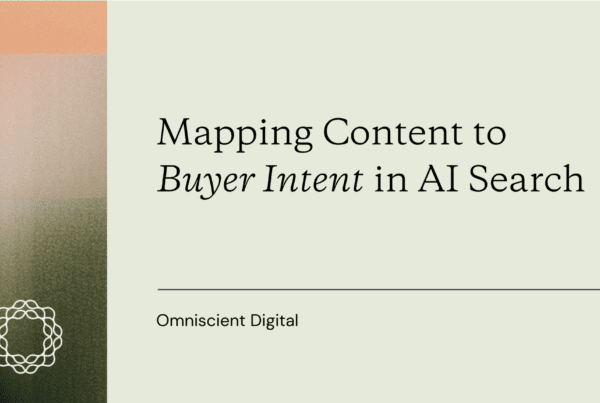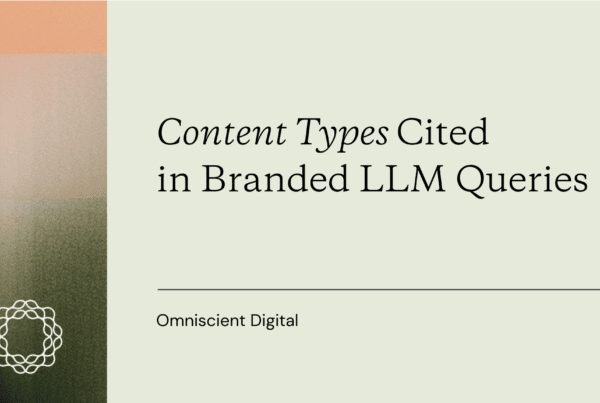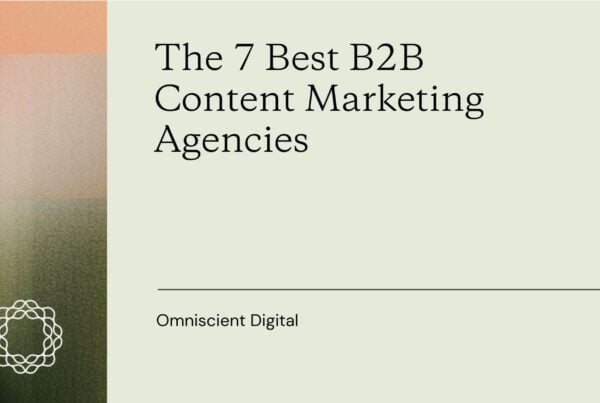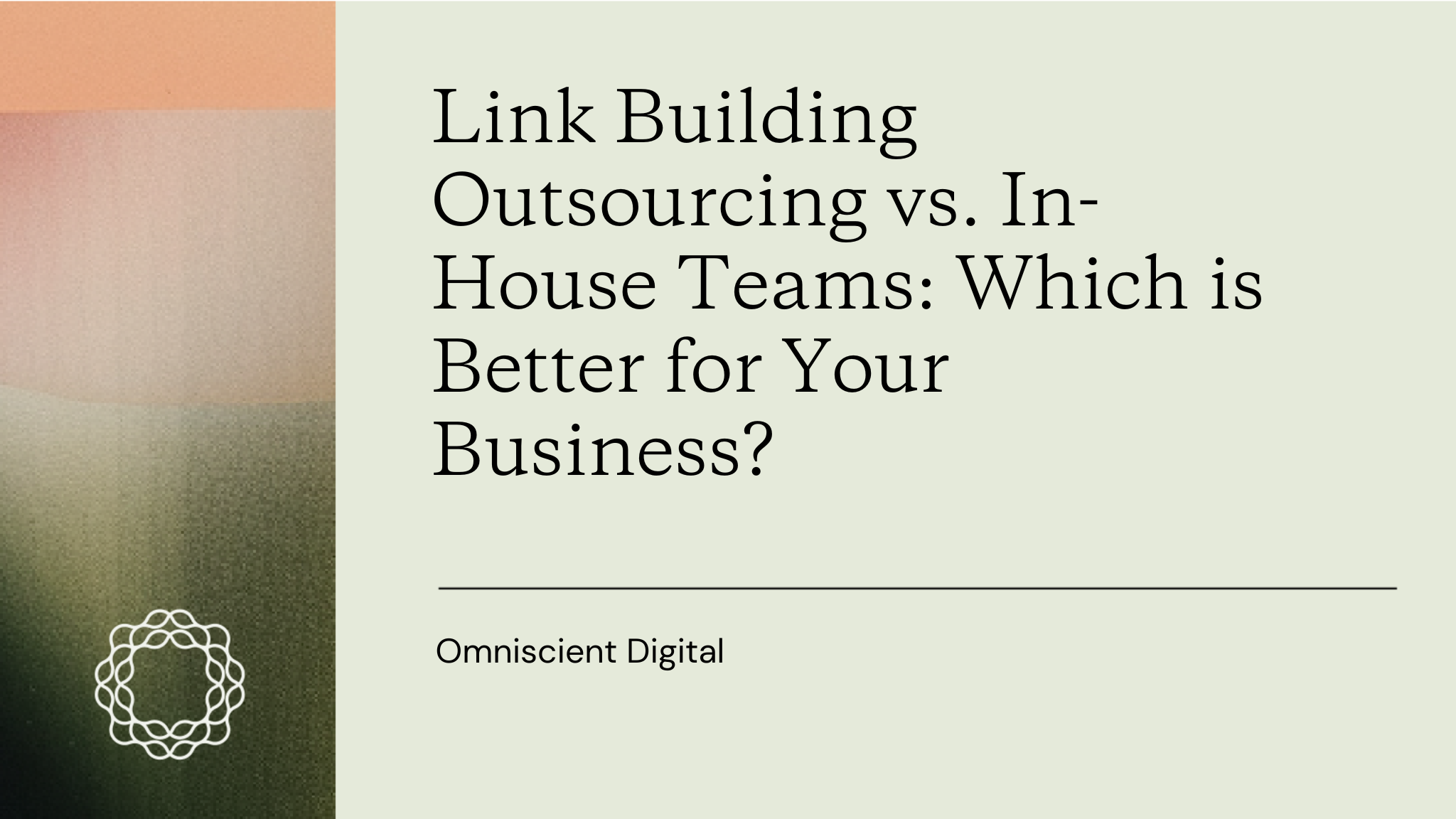
I’ve had this conversation more times than I can count—with startup founders, growth marketers, and enterprise content leads. Should we build a link building team in house or explore link building outsourcing to an agency or consultant?
The answer depends on six key factors: budget, timeline, internal expertise, scalability needs, control preferences, and business goals.
Let’s unpack each one so you can make a confident, ROI-driven decision.
Understanding the core concepts: In-house link building vs. link building outsourcing
Before we get into the decision framework, here’s what each approach actually looks like in practice.
What is in-house link building?
In-house link building means hiring an internal team or dedicating existing SEO specialists to handle your link acquisition efforts. These team members live and breathe your brand, sit in the same office Slack channels, and understand your broader digital marketing strategy.
The benefits of an in-house approach are obvious:
- Direct control over strategy, messaging, and execution
- Cultural and brand alignment you don’t have to teach
- Tighter collaboration across SEO, PR, and content teams
But that ownership comes with higher costs and slower scaling.
What is link building outsourcing?
Outsourced link building is when you partner with an external provider—like a freelancer, consultant, or agency—to secure backlinks to your site.
When done right, an outsourced approach leverages:
- External specialists who focus solely on link building
- Scalable processes that ramp up or down based on your needs
- Established relationships and tool mastery that would take years to develop
However, poor execution can mean link schemes, mismatched goals, or penalties.
Link building outsourcing vs. in house: Key factors to help you decide
Link building sounds simple in theory but becomes a logistics nightmare when you start scaling. It requires relationship building, copywriting, operations management, consultant management, and endless patience. So if you’re wondering whether to hire an SEO agency or build an internal team, welcome to the club.
Here are the six big decision factors I’d evaluate—based on working with dozens of clients on both sides of the outsourcing equation.
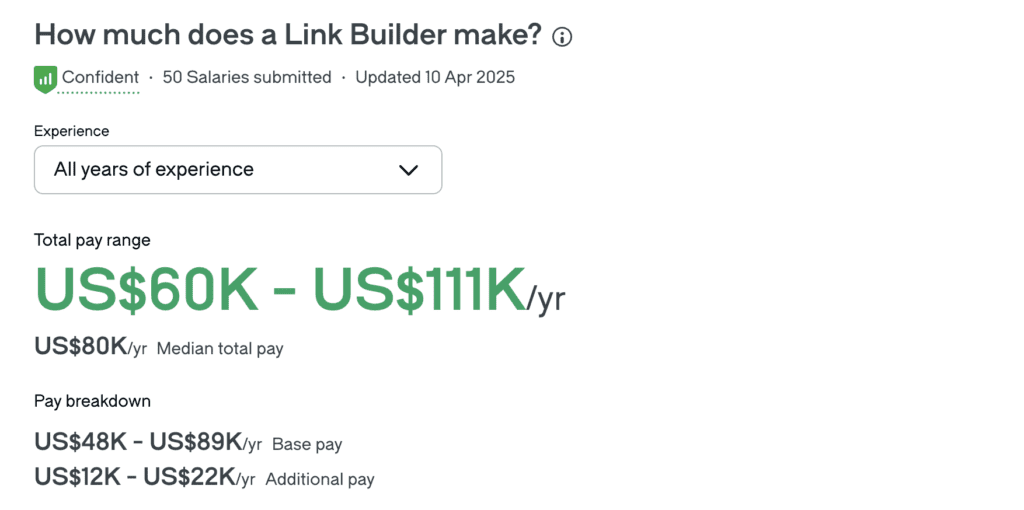
1. Budget and cost analysis
Cost is the obvious starting point.
Hiring an experienced in-house SEO specialist or digital PR pro isn’t cheap. You’re looking at $60K to $120K per year, and that’s before you factor in overhead and tooling (Ahrefs, BuzzStream, Pitchbox, etc.). Now add management time, onboarding, and the fact that a single hire probably can’t scale their outreach, content, and reporting all at once, and the total cost might be more than you bargained for.
White-label link building agencies typically charge $3K to $10K per month depending on the authority of the domains, the number of links, and the scope of the campaign. At first glance, this seems cheaper, but surface-level cost comparisons are only part of the picture.
Dig deeper by asking:
- What’s the ROI per link?
- How fast will we see time to value?
- What’s the opportunity cost of building in house vs. outsourcing?
For early-stage startups or enterprises needing plug-and-play scaling, agencies offer quicker returns and operational efficiency. If your goals center on brand building and you want full control over link quality and relationship dynamics, internal might be worth the upfront investment.
2. Expertise and skill requirements
A good link building strategy is about more than sending templated emails and hoping for the best. It requires negotiation skills, persuasive copywriting, and the expertise to interpret metrics that don’t always mean what you think.
You can absolutely teach these things. But if no one on your team has done cold outreach at scale, written persuasive guest pitches, or analyzed domain-level metrics, you’re looking at a months-long learning curve before you see real results.
As Vahan Poghosyan, CEO of Linkee, backlink software for SEO, points out, “Effective link building requires a combination of strategic thinking and practical skills. Understanding which opportunities are worth pursuing and crafting personalized outreach messages are critical to success. Without these capabilities, even the best tools or templates will have limited impact, and results may take significantly longer to achieve.”
Agencies have the advantage here. They’ve built the spreadsheets, vetted the domains, trained their outreach teams, and tested hundreds of subject lines to optimize open rates. If you need results this quarter, not next year, external specialists are the logical choice.
The example below illustrates the big picture exactly. Not only does every sentence respect the reader’s time—because good outreach is 20% messaging and 80% delivering it with clarity and respect—but it also offers a relevant resource instead of merely making a request. That’s the difference between getting archived and getting a response. And that difference takes months to develop, years to master, and consistent execution to scale.
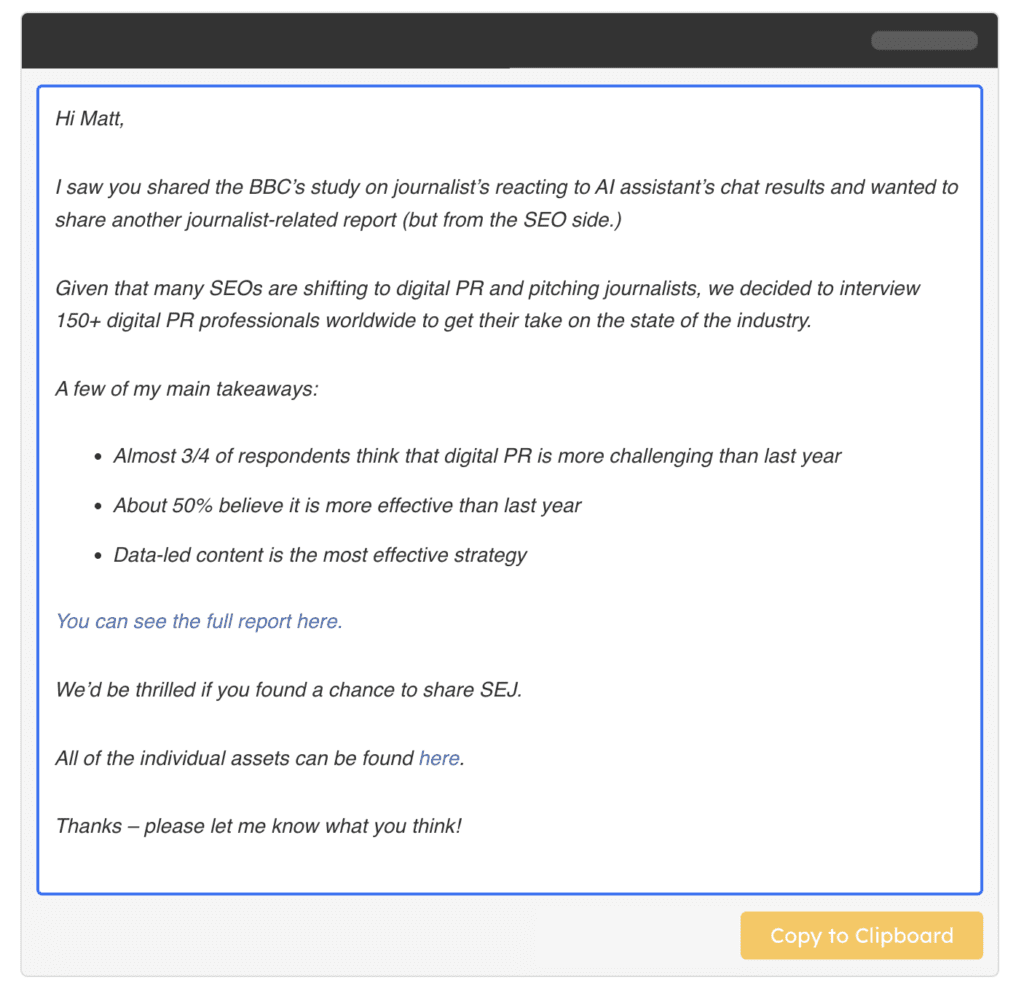
3. Scalability needs
Ask yourself: What does scale actually mean for us?
If you’re targeting 5–10 high-quality backlinks a month, maybe your in-house team can handle it (assuming they aren’t also juggling content, technical SEO, or CRO).
But if your roadmap calls for 30–50 links a month across multiple campaigns, outsourcing starts to look a lot more attractive. The right agency already has the team, systems, and prospecting engines to build without bottlenecks.
More importantly—agencies allow you to dial up or down based on budget, campaign cycles, or pivots in strategy. Flexibility matters.
4. Control and management preferences
Now think about how much you want to own. Some teams want full transparency—every pitch email reviewed, every domain evaluated, every anchor text approved. Others are fine with a monthly report showing DR, anchor, and live link URLs.
If you’re a control freak (no shade), outsourcing might be a bit uncomfortable. Most agencies operate in batches or sprints, not day-to-day updates. If that’s not your style, you might want an internal team or a hybrid model.
But here’s the trade-off: Micromanaging link building (whether internal or external) kills efficiency and team morale. The question isn’t whether you can control every detail, but whether you should. If you hire the right agency and they’re delivering results, your time is better spent on higher-level strategy.
5. Time commitment
The math here is simple. If your team is stretched thin, adding link building into the mix probably isn’t realistic—especially if SEO isn’t your core channel right now.
Manual outreach takes time. Prospecting domains takes time. Following up five times before someone responds? More time.
If you’re already dropping the ball on core content production, link building might be the wrong thing to DIY. Outsource it. Focus on what you do best.
6. Business goals
Your company goals might be the most important variable of all:
- If you’re in hyper-growth mode and need search rankings (and organic traffic) that result in revenue now, hiring a done-for-you link building agency can deliver faster results.
- If you’re in a longer-term brand-building phase where relationships matter more than raw links, building a team that can slowly develop that flywheel internally might be better.
It all comes down to your desired outcome and urgency. Are you optimizing for speed or control? Quick ROI or compounding brand value?
When does link building outsourcing make the most sense?
Link building outsourcing isn’t a cop-out—it’s a strategic unlock.
Most companies default to thinking they need to build everything in house. But there are plenty of scenarios where bringing in an outside partner isn’t just easier, it’s smarter. Especially if you’re trying to build links at scale without derailing your content roadmap or turning your SEO team into full-time email marketers.
Link building outsourcing is usually the high-leverage play when:
- You lack in-house link building expertise. If your team’s never written a cold pitch email or analyzed a backlink profile beyond checking DR, outsourcing skips the learning curve. Plus, finding skilled link builders is tough—they need to understand everything from prospecting and copywriting to relationship-building and negotiation.
- You need quick results. Link equity is a lagging indicator, but agencies can move faster than a newly hired team figuring out the ropes. Developing the right skills takes time and guidance. You’re paying for potential long before you get performance.
- Your team is already stretched thin. If your team is juggling SEO strategy, technical audits, and analytics reporting, adding link building to the mix waters down focus and leads to inconsistent execution.
- You’ve got a lean budget. Hiring an SEO agency for digital PR and link building can be more cost-effective than signing on a full-time employee with a $100K+ salary (plus benefits and an SEO tool stack).
- You want access to specialized networks and tools. Agencies come with existing partnerships, prospecting tools, and databases that would take years to develop internally. Why start from scratch when you can leverage their connections?
- You’d rather focus on strategy than operations. Let your in-house team prioritize content strategy and technical SEO. Delegate the operational messiness of link outreach to specialists who live and breathe it.
Look for agencies that prioritize white-hat link building and contextual tactics—not shady PBNs, link farms, or Fiverr “500 backlinks for $5” BS. The right partner will build your domain authority without risking penalties, giving you clean growth you can scale with confidence.
When is an in-house team the better bet?
Sometimes you want full control. You want your team in the trenches, targeting specific domains, refining anchor text, and reacting to algorithm updates.
That level of hands-on management comes with trade-offs—longer ramp times, higher upfront costs, and the operational complexities of hiring and scaling. But for companies with the right resources and a need for precision and customization, investing in internal talent may be a good long-term move.
Hiring an in-house team makes more sense when:
- You have plenty of budget and time. Building a world-class team means SEO strategists, digital PR pros, technical SEO experts, and analytics masters. Not cheap, but doable at scale.
- Your niche is ultra-specific or compliance-heavy. If you’re in medical, legal, or finance, you already know a nuanced understanding of regulations and compliance matters more than general link building skills. One wrong move can cost you more than you’d save with outsourcing.
- You care about brand tone and voice. No one knows your brand like your own team. Want to make sure every guest post has the perfect tone and A/B test CTA placement in every bio? That level of consistency requires someone who knows your voice inside and out.
- You want to build long-term internal capabilities. Creating your own link building machine means you own the assets, the process, and the learnings. In-house teams can coordinate directly with content, product, and PR without the communication overhead of external partners.
- You’ve been burned by low-quality outsourced links. If you’ve danced with a sketchy vendor and ended up with spammy backlinks, going with an in-house approach gives you oversight into quality from day one.
In-house teams take longer to get going but can deliver more sustainable results. If you’ve got the runway and resources, the investment in internal expertise can compound over time in ways an agency might not be able to match.
How to successfully implement your link building strategy
Once you’ve decided whether to build internally or partner with an agency, execution becomes everything. Both approaches can work well (or fail spectacularly) depending on how you set them up.
The fundamentals don’t change: You need clear processes, quality standards, and measurable goals. What changes is where you focus your energy and what you need to monitor.
If you’re building in house
Don’t half-ass it. If you’re going internal, build it like a product function:
- Invest in training: Maybe Ahrefs Academy, CXL content, or honestly, just reverse-engineer great campaigns
- Use modern platforms: Try Pitchbox, BuzzStream, or Respona for outreach
- Set clear KPIs: Monthly link targets, average DR, and link relevance score
- Run competitive benchmarking: If your top competitors are earning 25 links/month and you’re earning two, you’re not even in the same game
Treat it like any other revenue stream by building proper systems, defining clear metrics, and giving it enough resources to actually succeed.
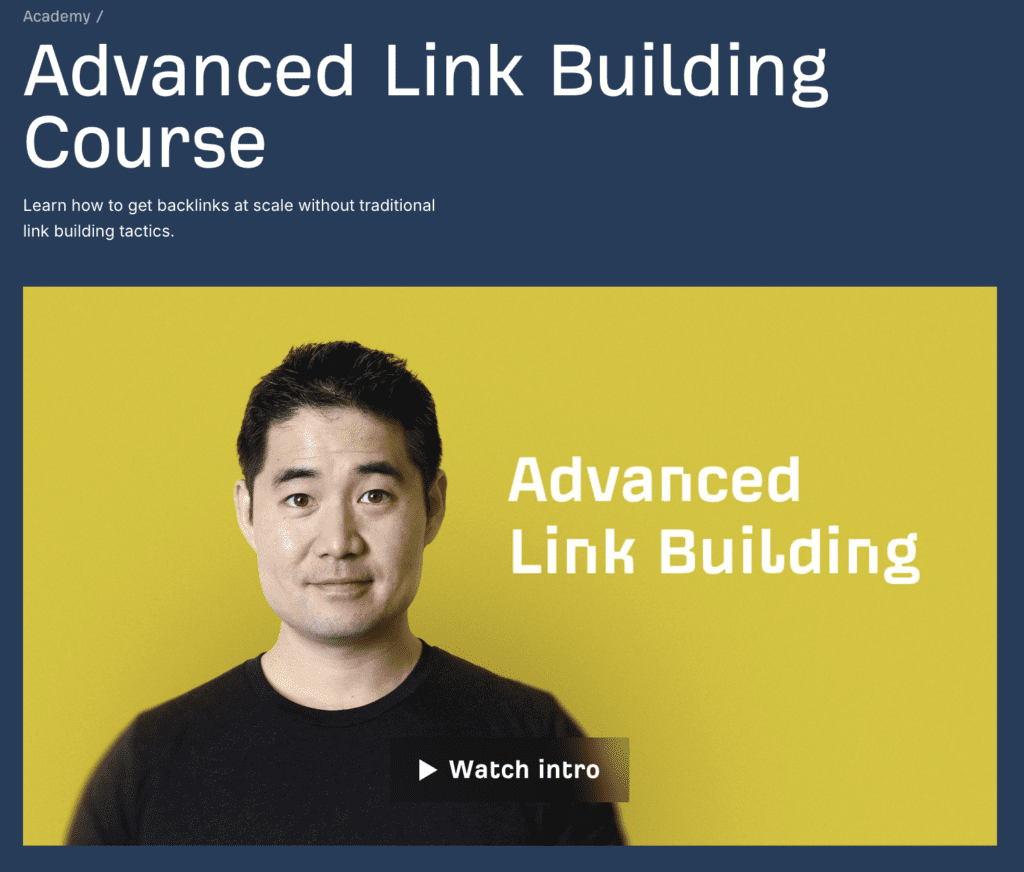
If you’re outsourcing
You’re still calling the plays, even if someone else is running the routes:
- Vet thoroughly: Ask for case studies or testimonials, reporting examples, and samples of live links (yes, really)
- Demand transparency: Regarding outreach, link placements, and QA
- Align on KPIs early: Not just “more links,” but the right links
- Approve outreach messaging and targeting criteria: Your brand voice doesn’t end with your blog
Agencies that aren’t transparent about domain quality or pitch strategy? Red flag. Move on.
Weighing your options for optimal link building success
The choice between outsourcing and in-house link building depends on your budget, timeline, internal expertise, scalability needs, control preferences, and business goals. But it doesn’t have to be an either/or decision.
Many of the fastest-growing SaaS and B2B companies use hybrid models—outsourcing link building services for scale while maintaining internal strategic control. You can start with agency partnerships to build momentum, then gradually develop internal capabilities. Or keep relationship-building in house and outsource volume plays.
If you’re still unsure, start small. Test an agency on a 3-month project and track the results. If it works, scale. If not, iterate. SEO isn’t static, and your approach doesn’t have to be either.
If you’re looking for a partner to help you scale link building with quality, consistency, and a proven strategy, we’d love to chat. We specialize in helping ambitious brands build scalable, defensible SEO programs through quality link building that combines technical know-how with editorial taste and smart outreach.
Book a strategy call to see how we can support your growth.

